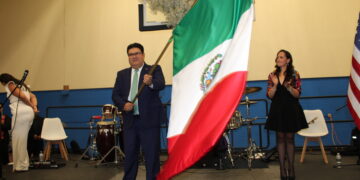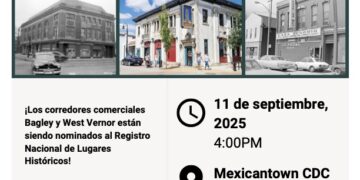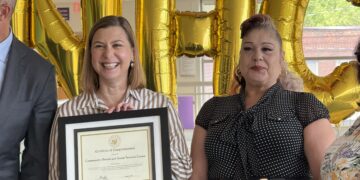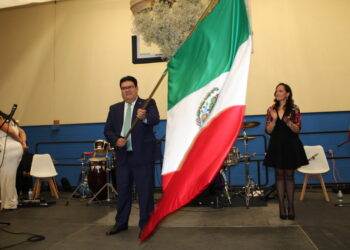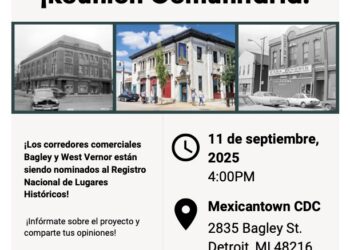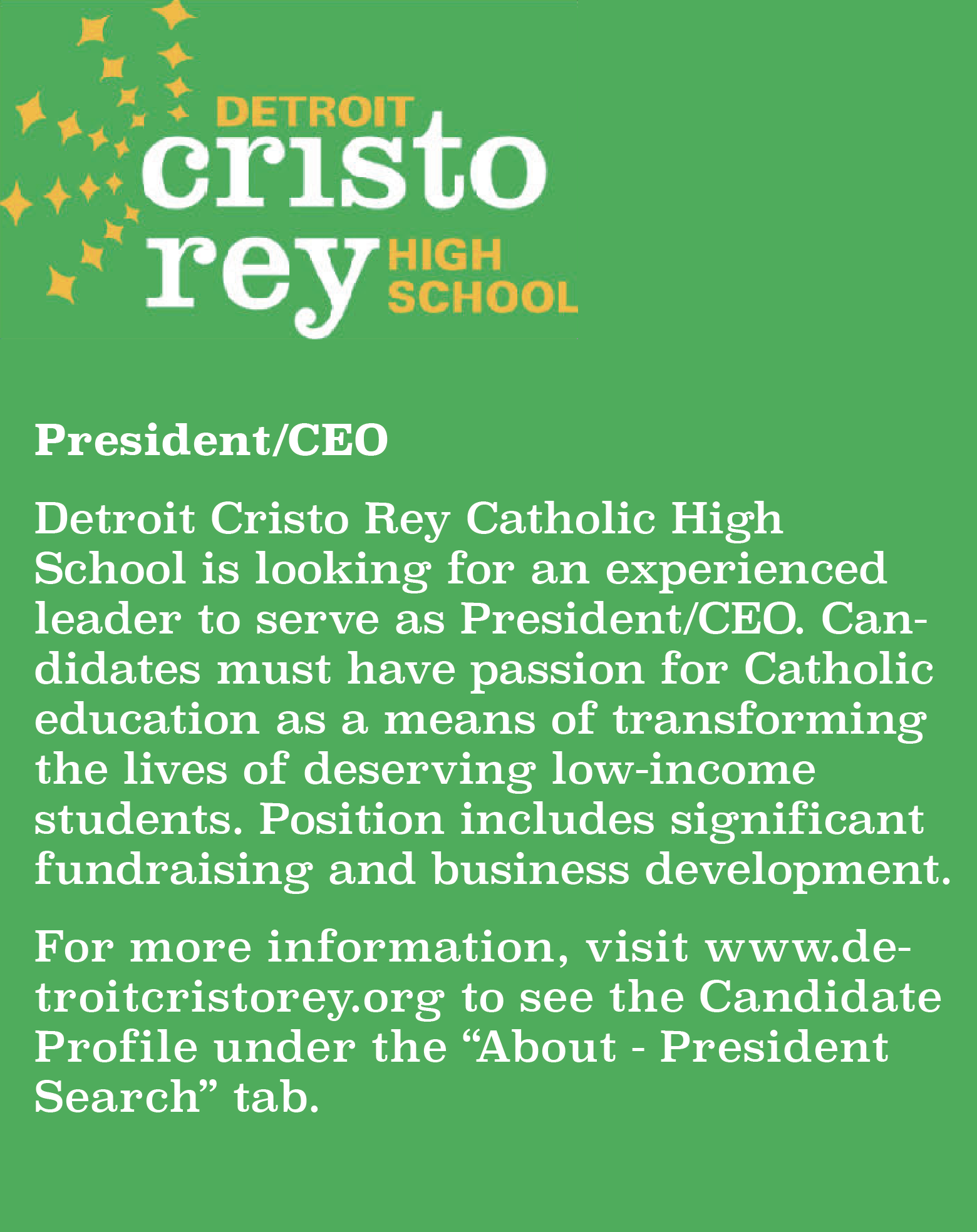EL CENTRAL: First of all, thank you for coming to Southwest Detroit and making yourself available to us, Governor.
EL CENTRAL: One of the issues that’s top of mind for the Hispanic community in Michigan, but in particular in southeast Michigan is the whole issue of driver’s licenses for immigrants. The DriveSAFE bill package seems to be stalled right now, particularly in the House. And, our understanding is that it’s kind of stalled because of the hesitancy of some legislators in swing districts. So the question is, what can you, as a governor who support the DriveSAFE bills do to encourage legislators who may be on the fence?
Governor: Well, first, I’ll just start by saying we’ve made a lot of long overdue changes in Michigan law in the last nine months, and are really proud of making Michigan a more welcoming state. A state where every person knows that there’s a path to prosperity for them, whether you are female or LGBTQ community or someone who needs protections against discrimination for national heirs. We’ve made lots of great changes in the law. And I think that’s really important. It’s part of our legacy. It’s part of who we are and why we are such a great, strong, diverse state. But also, as we think about additional things that we can do, think that this is one example of many where we’ve got work yet to do and that we can make some improvements. Obviously. I’m standing here with Poppy Hernandez, the head of Global Michigan. She’s front and center on a lot of these issues, and I want to give her an opportunity to speak, if you want to, on this issue.
Poppy Hernandez:
Well, I just think we know that having access to a driver’s license is part of how we signal that we’re a welcoming state. And so I know that the legislators are working hard to bring their districts along, and so we want to be supportive of that. But the governor has been very clear about where she stands on this. And our office at Global Michigan, and our ethnic commissions are all working in unison to help educate folks about why this matters and how this actually is very directly related to growing our economy. So it feels like we’re moving in the right direction.
EL CENTRAL: We also understand that it would help if law enforcement would weigh in on the issue, particularly if they can learn from their peers in other states that this is actually a good thing, to have people with licenses and insurance, and all the rest. Is there a chance that you could speak to the Director of the (Michigan) State Police and encourage him to do that?
Governor: Well, I would encourage all people in law enforcement and in the business community to recognize that this would be an asset for the state of Michigan, a way to grow our economy, grow our population, which is in all of our interests. And so as we think about stakeholders and important voices, I recognize that both our policing organizations as well as the business community could be very helpful here, too.
EL CENTRAL: Along the lines of Growing Michigan, yesterday (October 10) you announced the “You Can in Michigan” campaign. That’s very exciting. We’ll be covering that. So the question is, I was looking at some of the materials, radio spots and printed material. Will there be materials and messaging in Spanish and other languages?
Governor: Yes, that is the plan, to expand this campaign to make it very inclusive, as you saw in the first iteration. Nando Garza is a wonderful spokesperson on behalf of Michigan. And I think we don’t highlight that he has a Hispanic heritage, but I think people can see that Michigan is a place where all people can make a good life and make a good living and it’s a great part of who we are. And “yes, you can in Michigan”!
EL CENTRAL: Well, if it’s anything like pure Michigan, it’s going to be a resounding success.
Governor: Yep.
EL CENTRAL: Another question. Obviously, everybody’s aware of the pressures on the southern border and there’s movements to move immigrants to other cities, particularly New York and other cities outside of the south. What can the state do to support cities like Detroit, Grand Rapids and other destinations that are right now preparing for an influx of immigrants in terms of their needs for housing and other social services, let alone eventually work opportunities?
Governor: I think one of the things we’ve done a lot of, I think very foundational things, right? Expanding access to health care, making sure that we’re building out affordable housing options, finally funding our schools in an equitable manner so that English Language Learners get the extra support that they need to level the playing field, among others, like kids with special needs. And I think this is a prime example of a lot of the foundational things that we’ve done as we look at the international aspect to what is happening here and some of the crass moves that some governors are making in terms of treating people with such disrespect and cruelty. In my estimation, we need the federal government to be great partners so that we’ve got the resources to ensure if and when people come to Michigan, that we can do what we need to keep them safe and also help people have a path into the workforce. Poppy, did you have anything you want to add?
Poppy Hernandez:
I would love to add to this because I think that this governor has done more to create a welcoming Michigan than any governor that I know of in recent history or (our) long history. So really when you talk about what are we doing to prepare for folks wherever they’re coming from, the Office of Global Michigan, our budget was, I mean, we went from $500,000 annually, state appropriation to $15 million. All of those dollars are going directly into local communities to support people coming into our state to ensure that they can fully integrate into our workforce. They have great schools to attend; they have access to health care. This governor signed into the budget the expansion of Medicaid so that children and moms are covered regardless of their status. This governor has done more, as I said, to make sure that Michigan is a welcoming state than we’ve ever seen in our history, as far as I’m concerned. So the proof is in the pudding, right. It’s where the dollars are. And we’re moving in that direction. We are ready for people to come into our state. So come on in.
EL CENTRAL: (To Ms. Hernandez): There’s another interview there to get down to the details on those things. Excellent.
Governor: All right, one last question.
EL CENTRAL: As far as appointments to judgeships and boards and commissions of Hispanics and other people of color, obviously you’re committed to that. What messaging do you have for the Hispanic community in particular in terms of accessing that whole process which can be cumbersome? We talked a little bit about that (To Ms. Hernandez) earlier tonight.
Governor: Yeah, well, number know we’ve made great strides in terms of diversifying boards and commissions on the bench in Michigan over the last five years. I’m really proud of that work. But we’re always looking for great candidates, diverse candidates, candidates who bring a different perspective into a realm where maybe that voice hasn’t been at the table before. So I would encourage your people who are interested to make sure that they apply. And it’s not a cumbersome process. It does take an application, though, to be considered, and we go through our process. But there are boards from the Michigan Women’s Commission to the bench. We make thousands of appointments every year. So there are different ways people can participate. If they go to our website, check it out, and see all the different places where perhaps they might have something to contribute, we welcome that. We encourage it. We need more great candidates.
EL CENTRAL: (We’re) going to try and help publicize that.
Governor: Good. All right. Thank you.

